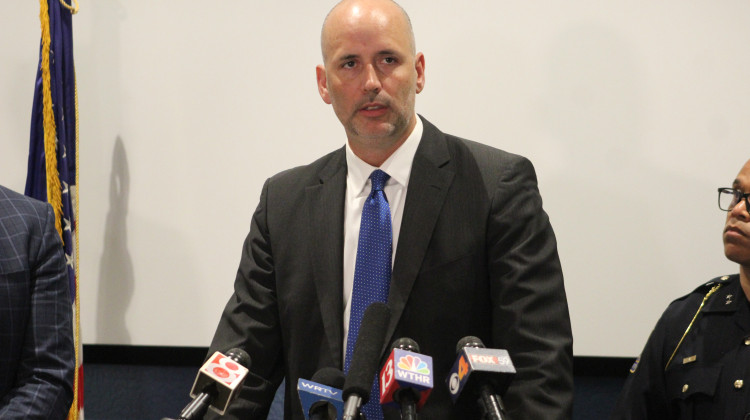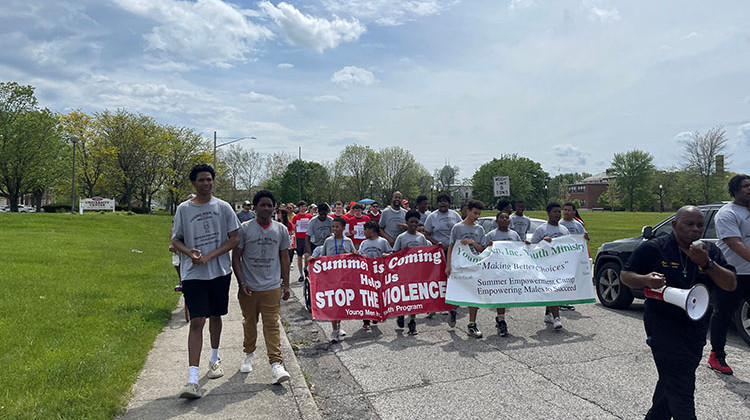
A new tool breaks down Indianapolis neighborhoods based a number of factors, identifying where to plant more trees.
Courtesy of American ForestsWith the number of high-heat days increasing due to climate change, some advocacy groups say tree cover is important to keep neighborhoods cool.
American Forests, a D.C.-based advocacy group, has done a tree equity analysis of Indianapolis — identifying the neighborhoods most in need of more trees.
The analysis uses data including income, age, tree cover, and surface temperature to calculate a so-called “tree equity score” for different sections of the city.
Joshua Simon with American Forests said the tool will help Indianapolis identify areas where trees are most needed to reduce heat risk.
“Trees are one of these cool features that allows us to cool our cities by also making it beautiful and enjoying ways beyond the ecological benefits of it,” he said.
Parts of Indianapolis, including Broad Ripple and Meridian Hills, had good tree equity scores while other neighborhoods, including Riverside and Old Southside, had lower scores.
Last year, Indianapolis celebrated a local initiative planting some 30-thousand trees across the city.
Carly Weidman is the VP of Stakeholder Engagement with Keep Indianapolis Beautiful, which has helped the city reach that goal.
“This is a starting area to be able to have the conversations, look at the areas that are highest need, and then dig into why there are not trees there and in order to get trees in those areas what are the next steps we might all need to take,” she said.
According to the American Forests analysis, Indianapolis would need to plant roughly 3.3 million trees to reach the ideal equity score.
When reached for comment, a spokesperson for the city’s office of sustainability said that they would continue to “prioritize the neighborhoods that need trees (and the cooling effects, stormwater retention, and cleaner air they bring) the most.”
 DONATE
DONATE






 View More Programs
View More Programs

 Support WFYI. We can't do it without you.
Support WFYI. We can't do it without you.